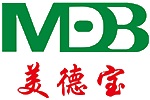-
-
Company Profile
-
Waterproof breathable membrane
Vapor barrier film
Barrier film
Reflective insulation film
Understanding Polyvinyl Chloride Waterproofing Membrane: Key Insights for Building and Decoration Materials
Release time:
2025-09-26
Polyvinyl Chloride (PVC) waterproofing membrane is a synthetic material widely used in construction and decoration applications, particularly in roofing and foundation systems. Its unique composition and properties make it a preferred choice for effective waterproofing solutions. PVC membranes are known for their excellent resistance to water, chemicals, and UV radiation, which contributes significantly to the longevity and durability of structures.
One of the primary advantages of PVC waterproofing membranes is their flexibility. This characteristic allows the material to adapt to movement within the building structure, which is essential for preventing cracks and leaks. Additionally, the lightweight nature of PVC makes it easy to handle and install, reducing labor costs and time during the construction process.
PVC waterproofing membranes are available in various thicknesses and can be used in both residential and commercial projects. They are particularly beneficial for flat roofs, where water pooling can become a significant issue. The seamless installation provided by PVC membranes minimizes the risk of water penetration compared to traditional roofing materials that may have seams or joints.
Another noteworthy feature of Polyvinyl Chloride waterproofing membranes is their resistance to mold and mildew. This property is especially important in areas with high humidity or exposure to water, as it helps maintain a healthier indoor environment. Furthermore, PVC membranes are recyclable, making them an environmentally friendly option in the construction industry, aligning with sustainable building practices.
When considering waterproofing solutions, it is essential to note that proper installation is critical for the performance of PVC membranes. Professional installation ensures that the membranes are laid down correctly, with appropriate overlaps and seals to prevent leaks. Regular maintenance and inspections are also recommended to ensure that the membrane continues to perform optimally over time.
In conclusion, Polyvinyl Chloride waterproofing membranes provide a reliable, flexible, and durable solution for various construction and decoration projects. Their ability to withstand environmental challenges, coupled with ease of installation and maintenance, makes them a valuable addition to any building material portfolio. By understanding the benefits and applications of PVC membranes, builders and contractors can make informed decisions that enhance the longevity and performance of their structures.Previous article
Previous article
recommend News
Sell one
Kelly Ho
15133606577
kelly.ho@tjmeidebao.com
Sales two
All- All
- Product Management
- News
- Introduction
- Enterprise outlets
- FAQ
- Enterprise Video
- Enterprise Atlas
Sweep the attention to us

COOKIES
Our website uses cookies and similar technologies to personalize the advertising shown to you and to help you get the best experience on our website. For more information, see our Privacy & Cookie Policy
COOKIES
Our website uses cookies and similar technologies to personalize the advertising shown to you and to help you get the best experience on our website. For more information, see our Privacy & Cookie Policy
These cookies are necessary for basic functions such as payment. Standard cookies cannot be turned off and do not store any of your information.
These cookies collect information, such as how many people are using our site or which pages are popular, to help us improve the customer experience. Turning these cookies off will mean we can't collect information to improve your experience.
These cookies enable the website to provide enhanced functionality and personalization. They may be set by us or by third-party providers whose services we have added to our pages. If you do not allow these cookies, some or all of these services may not function properly.
These cookies help us understand what you are interested in so that we can show you relevant advertising on other websites. Turning these cookies off will mean we are unable to show you any personalized advertising.
Copyright: Tianjin Medabao Technology Co., Ltd.
Business License
-


